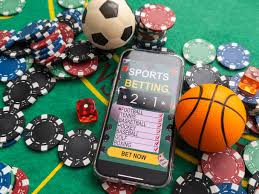Best poker strategies for beginners 1

Best Poker Strategies for Beginners
Starting your journey in the world of poker can be both exciting and overwhelming. With so many strategies, styles, and techniques out there, beginners can often feel lost. In this article, we will explore the best poker strategies for beginners that will help you improve your game and increase your chances of winning. Whether you are playing in a casino or online, these tips will guide you on your path to becoming a successful player. If you’re looking to get started, consider making a Best poker strategies for beginners betpro exchange deposit to begin your poker journey without distractions.
Understanding the Basics
Before diving into strategies, it is crucial to understand the basic rules of poker, hand rankings, and betting structures. Familiarize yourself with the different game types, such as Texas Hold’em, Omaha, and Seven Card Stud. Each variant has its own set of rules, and understanding these differences will help you adapt your strategy accordingly.
Starting Hand Selection
One of the most important aspects of poker strategy is starting hand selection. As a beginner, it’s vital to be selective about the hands you choose to play. Generally, stronger hands like high pairs (Aces, Kings, Queens) and high cards (Ace-King, Ace-Queen) are preferable. Avoid playing too many weak hands, as they can lead to unnecessary losses. As you gain more experience, you can experiment with a wider range of hands, but mastering starting hand selection is key for beginners.
Position is Key
Understanding your position at the table can significantly impact your decision-making process in poker. Your position refers to where you sit in relation to the dealer. Players who act later in the betting round have more information about the actions of other players, allowing them to make more informed decisions. As a beginner, try to play tighter from early positions and loosen up in later positions. This strategy will help you maximize your winning potential.
Pay Attention to Other Players
Observing your opponents is a crucial strategy that many beginners overlook. Pay attention to how they play their hands, their betting patterns, and their reactions to different situations. By identifying whether your opponents are aggressive or passive, you can adjust your strategy to exploit their weaknesses. Building this skill will enhance your overall poker understanding and improve your decision-making at the table.
Learn to Bluff Wisely
Bluffing is an essential part of poker, but it should be used strategically and sparingly, especially as a beginner. Bluffing can be effective if the situation is right; for example, if you have been playing conservatively and suddenly make a significant bet, your opponents may believe you have a strong hand. However, avoid excessive bluffing, as seasoned players will catch on quickly. Instead, focus on making your bluffs believable and well-timed.

Bankroll Management
Effective bankroll management is crucial for any poker player, especially beginners. Set a budget for how much you are willing to spend on poker and stick to it. Avoid playing at stakes that are too high for your bankroll. A common rule of thumb is to have at least 20 to 30 buy-ins for the level you are playing. This approach ensures that you can withstand the natural variance that comes with poker.
Practice Patience
Patience is a virtue in poker. Many beginners tend to play too many hands or become frustrated after a few losses. It is vital to remain disciplined and wait for the right opportunities. Remember that poker is a long-term game, and your goal is to make the best decisions over time rather than chasing short-term results. If you find yourself losing focus, take a break or step away from the table until you feel ready to continue.
Utilize Online Resources
In the age of technology, there are countless online resources available for poker players, including tutorials, strategy guides, and forums. Utilize these resources to expand your knowledge and gain insights from experienced players. Many professionals share their strategies through blogs or videos, allowing you to learn from their techniques. Engaging with online poker communities can also provide support and motivation as you progress.
Evaluate Your Play
After each session, take the time to review your play. Analyze the hands you won and lost, and consider what you could have done differently. This self-reflection is crucial for improvement. Many online poker platforms now offer hand history tools, allowing you to review specific hands and learn from your mistakes. By consistently evaluating your gameplay, you’ll develop a deeper understanding of the game and how to implement better strategies.
Stay Emotionally Composed
Emotional control is vital in poker. Tilt, which refers to playing recklessly due to frustration or anger, can quickly lead to significant losses. As a beginner, it may be tempting to chase your losses or take reckless actions after making mistakes. Instead, practice self-awareness and recognize when you are becoming frustrated. If you find yourself losing your composure, take a break to reset your mindset before returning to the table.
Final Thoughts
To sum up, mastering poker as a beginner takes time, practice, and dedication. Focus on learning the basics, developing strong starting hand selection, understanding your position, and managing your bankroll effectively. Patience and emotional control will serve you well as you navigate the ups and downs of poker. By employing these strategies and continuously learning, you’ll be well on your way to becoming a successful poker player. So, take your time, enjoy the game, and good luck at the tables!






















